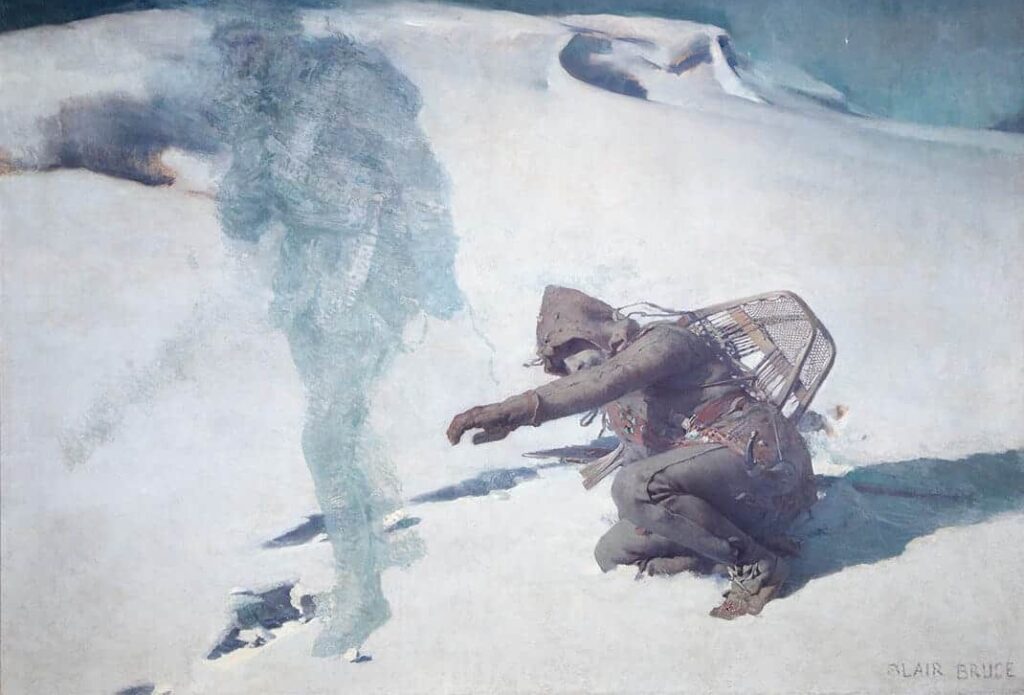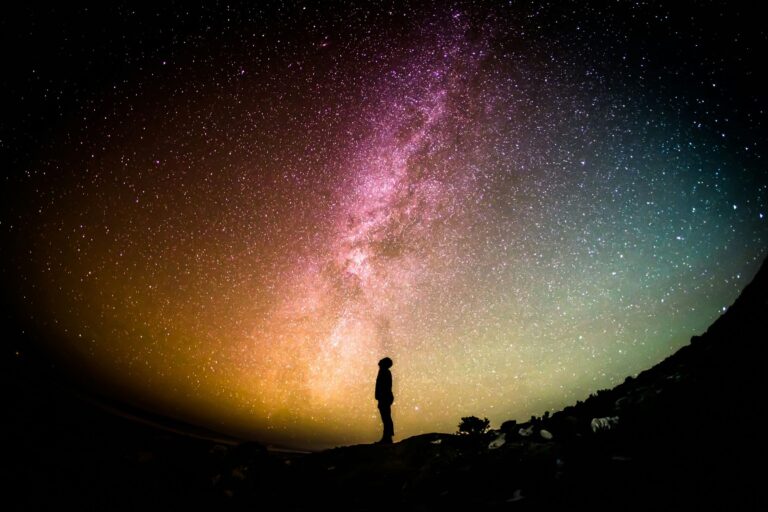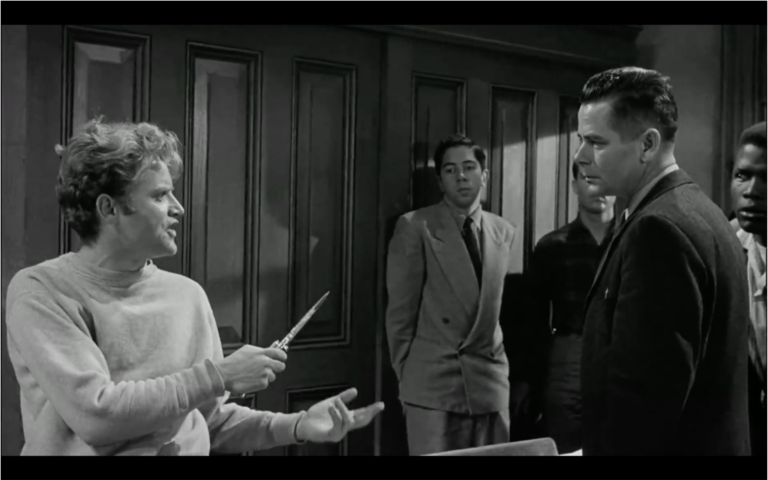Pearson International Airport greets no one with affection. The ceilings sag under fluorescent glare, the tiled concourses echo with static French-and-English announcements, and the baggage belts grind more reluctantly than at any other airport in the world, as if unwilling to repatriate anyone. My wife rubbed her eyes, shoulders bowed under 20 hours of travel. My daughter clutched her bear and looked up at me with the question I was already asking: Will Canada make it worth it?
I had dreamed of this return for years. Through the long grey rains of Saigon and the tropical nights in Hanoi, I would picture Canada not as a map but as a memory – the smell of snow, the hush of fields in February, the particular clarity of air after frost. I wanted my daughter to know that silence, to grow up with the same winters I had once cursed and later missed. In the months before our flight I imagined the homecoming as absolution: a chance to belong again, to see the country not as an argument but as a promise still intact. It was naïve, perhaps, but necessary – some faith in the idea that exile, if endured long enough, might end in recognition.
Northrop Frye once called Canada’s psyche a “garrison mentality”: a small settlement huddled against an indifferent wilderness. Pearson Airport was no different: its walls of plexiglass and bureaucracy seemed built not to welcome but to repel. We queued like settlers behind palisades, waiting for the next instruction. Al Purdy would have laughed at the irony. He once urged Canadians to “say the names” of their land, to anchor themselves by pronouncing its rivers and bays:
say them say them remember
if you ever wander elsewhere
“the North as a deed and forever”
Kleena Kleene Nahanni
Osoyoos and Similkameen
say the names
as if they were your soul
lost among the mountains
a soul you mislaid
and found again rejoicing
Tulameen Tulameen
till the heart stops beating
say the names
But here, the names were not Georgian or Huron – or not yet: they were Gate 143, Customs Hall C, Visa Kiosk 7.
I had been away for most of my adult life: Hanoi, Busan, Beijing, Guangzhou, Saigon, cities where the entire air was made up of improvisation, where a permit form might exist but no one cared to check it. I had built a career, written in exile, raised a family. Distance gave me clarity, or so I believed. But estrangement corrodes. Coming back, despite the cold formality of Pearson, return, I remembered, could still mean finding one’s place again.
To George Grant, liberalism was not just a political program but a philosophy of surrender: the elevation of managerial rationality over moral rootedness, of efficiency over loyalty, of cosmopolitan abstraction over inherited forms of life. Carney is the natural heir to that project.
Airports are tuned to the national frequency. Overhead screens blared mid-June headlines. The G7 Summit in Calgary and Kananaskis was forecast to draw protests, RCMP promising vigilance. Mark Carney, anointed successor to Justin Trudeau, was profiled as the steady hand guiding Canada towards a 15th year of Liberal rule. Continuity was the word, though it felt to me like permafrost. Travis Dhanraj’s resignation from CBC scrolled across the ticker, but the headlines only hinted at the depth of his words.
Standing in line at a Starbucks while my wife and daughter waited for their drinks, I opened Dhanraj’s letter on my phone: “This is an involuntary resignation. I am stepping down not by choice, but because the Canadian Broadcasting Corporation has made it impossible for me to continue my work with integrity…Performative diversity, tokenism, a system designed to elevate certain voices and diminish others.” It was censorship by a culture that refused to call it such, a culture that punished those who refused to fall in line. The screens didn’t persuade; they refrigerated. Margaret Atwood’s 53-year-old suggestion in Survival: A Thematic Guide to Canadian Literature came into my mind, that the Canadian identity is bound to the victim position, forever “falling through the ice.”
George Grant saw in liberal modernity a creed that would always bend the knee to continental and global forces, dismantling national particularities in the name of progress. To him, liberalism was not just a political program but a philosophy of surrender: the elevation of managerial rationality over moral rootedness, of efficiency over loyalty, of cosmopolitan abstraction over inherited forms of life.
Carney is the natural heir to that project. A former central banker, a man moving for decades through the rarefied airs of global investment houses, government finance departments and the World Bank, Carney presents himself as the sober adult in the room – a man of charts, ratios, international summits and policy levers. To the media he is the picture of competence. But competence toward what end? His political philosophy is not that of statesman but of technocrat: Canada as spreadsheet, as ESG benchmark, as carbon ledger. In Carney’s rhetoric, Canada becomes the “most European of non-European countries,” as if our destiny is to erase distinction and be absorbed seamlessly into the global liberal order.
This is just the sort of drift Grant warned about. In Lament for a Nation, he argued that Canadian nationalism would be dismantled not by outright conquest but by our own willingness to dissolve into a larger, more powerful liberal empire. Under Carney, continuity does not mean stability; it means the deepening of dependency. The U.S. imposes tariffs, and Carney flies to Brussels to claim we are “European”. Our productivity collapses, and he prescribes more green finance targets. Our sovereignty frays, and he reassures us that integration is “the future”. For Grant, this was the logic of liberalism: the constant yielding of the particular to the universal, until nothing remains of the nation except administration.
My wife Linh stared silently forward, her face reflected faintly in the glass. Later she told me she loved it, the air that smelled of pine instead of diesel, the quiet that felt enormous. To her, Canada was light, order, space: a relief from the crowded pulse of Asia. She still dreams of it.
To see Carney praised as continuity after Trudeau’s parade of scandals was to see Grant vindicated. Carney is the Liberal leader Grant foresaw: the philosopher-king of drift, the embodiment of a politics that manages decline rather than resists it. And in that drift, Canada ceases to be a nation in any meaningful sense; it becomes, in Grant’s phrase, “an outpost of the American empire,” or worse, a global brand without roots.
The Cold Condition
We loaded our bags into a relative’s car and headed north, past strip malls that gave way to half-finished subdivisions, streetlights flickering against the dusk. The outlines of barns crouched low against the horizon, and dark forests hemmed in the edges of the highway. The sprawl thinned, replaced by farmhouses with a single window lit, and fields lying raw after the season’s first cut of hay. As we drove on the road narrowed, the sky deepened and the silhouettes of maples and cedars pressed close to the shoulders, black against the fading light. Our daughter slept in the back, her head tilted toward the window.
My wife Linh stared silently forward, her face reflected faintly in the glass. Later she told me she loved it, the air that smelled of pine instead of diesel, the quiet that felt enormous. To her, Canada was light, order, space: a relief from the crowded pulse of Asia. She still dreams of it, though we knew even then we might have come home at the wrong time, shocked by the election result, expecting change and finding instead the same grinding Liberal continuity. The streets looked clean but emptied of youth, grocery aisles manned by seniors and new arrivals, the rhythm of a country going through its motions. She couldn’t see what I saw, and that difference comforted me, and still does; it meant someone in our family could still believe in the place, could still see it as we once imagined it, even if the dream itself went unrealized.
I tuned into a podcast from New York, the hosts laughing about something breaking in Canada, not kindly but with the scorn of those who consider you unserious. “Canada,” they scoffed, “where the homeless can die with dignity.” They were talking about the country’s plan to “offer” Medical Assistance in Dying to those suffering solely from mental illness. The policy’s further expansion had already been delayed after public outcry, but to outsiders it looked grotesque: a nation unable to house its most vulnerable yet preparing to offer them a doctor’s hand toward death. The joke landed because it contained a truth: a government more adept at administering endings than sustaining lives.
More than 52,000 Canadians had died of opioid overdoses since my last stay in 2016. The numbers mount year after year, concentrated among young men in their 20s and 30s, futures lost to a toxic supply that overwhelms underfunded treatment beds. Suicide rates may not spike dramatically in official statistics, but mental health surveys show an alarming rise in despair: more youth reporting suicidal thoughts, more adults overwhelmed by anxiety and depression, more families broken by a system that cannot meet them where they are. The public broadcaster talks endlessly of “awareness”, governments promise strategy after strategy, yet the concrete realities – housing, recovery programs, psychiatric care – fall short. Canadians are dying in obscure alleyways and emergency rooms while policymakers expand the paperwork for assisted death.
Having grown up a millennial, I thought about my perception of Trudeau in 2013, when he called China the international government he admired the most. Trudeau’s words were clear: “You know, there’s a level of admiration I actually have for China because their basic dictatorship is allowing them to actually turn their economy around on a dime…”
Even as a student I could hear the problem. The “admiration” lay not in China’s accomplishments but in the dictatorship itself: the “flexibility” of one-man rule, the ability to bypass the tedium of democracy, debate and dissent. It was not really about solar panels or the speed of economic pivots. It was about the allure of power unencumbered by citizens, courts or legislatures. Trudeau tried to laugh it off as a joke, but close reading makes that impossible: the joke lies in the statement “Stephen Harper must dream about” (referring to the former Conservative prime minister’s alleged lust for power), but the admiration stands unqualified. At its core the remark revealed not only a naïveté about authoritarianism but a certain impatience with Canada’s democratic messiness – an instinct that would, in time, come to shape Trudeau’s governance.
Museums in China are not just repositories of memory; they are armories of state legitimacy, curated to galvanize the people against enemies real or imagined. The Party understands history as a tool of discipline. So, too, do the Trudeau Liberals.
Later, when I did go to China, I understood how hollow his words sounded to people who lived under the “flexibility” he envied. And later still, I watched him arrive in Beijing only to be dismissed by Communist Party officials, denied the meetings he craved. Canada was not taken seriously by the apparatus he so admired.
What struck me most was how his words turned out to be prophetic. Since 2015, Liberal governance has borrowed increasingly from the Communist playbook: centralization of decision-making, regulation in place of persuasion, debate curtailed in Parliament, speech managed by subsidy and law. In China I had seen how narrative is weaponized. Visiting the Nanjing Massacre Memorial, I was asked for my passport before being admitted. Museums there are not just repositories of memory; they are armories of state legitimacy, curated to galvanize the people against enemies real or imagined. The Party understands history as a tool of discipline.
So, too, do the Trudeau Liberals. Their version is softer, wrapped in the language of diversity and inclusion, but the instinct is the same: to police the narrative. From the rewriting of Canada’s Indigenous relations history into unquestionable dogma, to Bill C-63 and the coming “Online Harms” regime, to the ideological straightjacketing of the CBC, the goal is control. Canada is not China. Our elections remain free, our courts independent. But the drift is unmistakable: centralization masked as compassion, censorship disguised as civility, history conscripted into political service.
Canada itself has always been a country defined by cold, both in climate and in temperament. Winters stretch endlessly, pressing down on bodies and minds alike, shaping our character into something stoic, sometimes brittle. Leonard Cohen captured this in one of his most mordant images: “In Montreal spring is like an autopsy. Everyone wants to see the inside of the frozen mammoth.” Canada’s cold is not just a season here but a condition, a fact that governs how Canadians live, wait and hope.
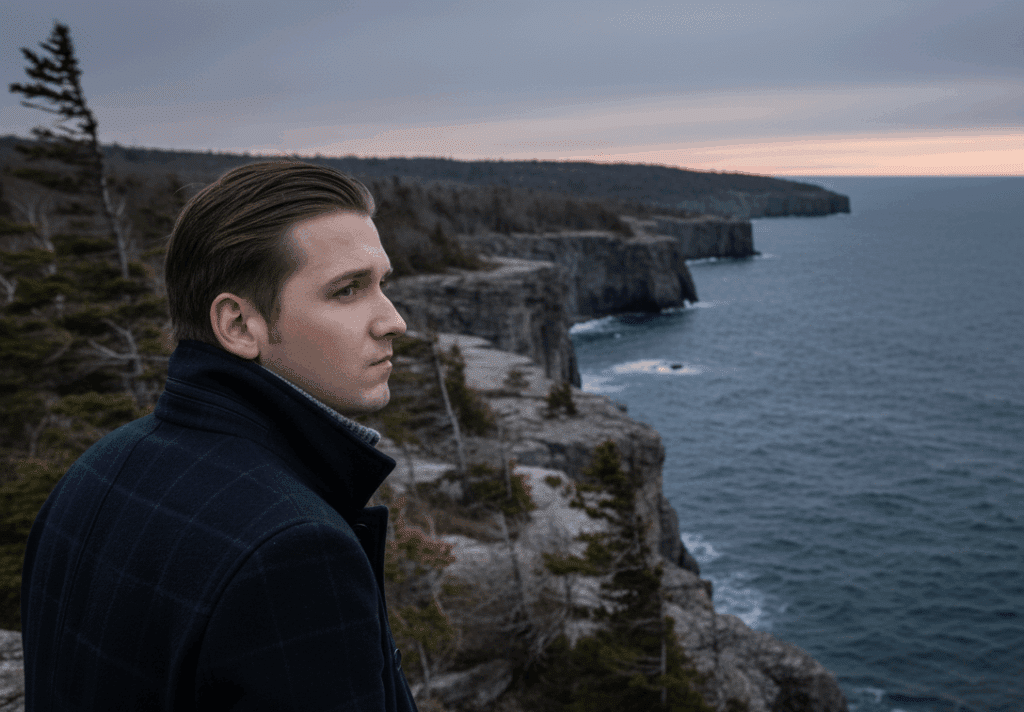
I thought of that first dream of return, how easily I had mistaken distance for perspective and perspective for hope. Here, at least, I could see why people were happy. The silence was unbearable but anchoring. This was north, lower-case: the geography, the landscape. But as poet, songwriter and essayist David Solway believes, North is not latitude but destiny: “The voyage itself is the truest glass.” In the bay’s reflection I felt that glass waiting, ready to return me to myself.
Pearson Airport had been a form of North: queues, forms, fluorescent garrisons. Colpoy’s was North: silence, exposure, a mirror asking if I could stand what it showed. Atwood’s survival, Frye’s garrison, Grant’s lament, Cohen’s refusal, Purdy’s names, all circled as I stood by the water.
Solway reminded us in C2C that North is something larger, not a latitude but a fate: “Considered as a metaphorical analogue, North is the meridian of a condition, not a geodesic location. It is a timeless concept bearing a singular resonance. After all, there is no time zone at the North Pole. The discrimination is a subtle one, referring on the one hand to a particular terrain and climate and, on the other, to the icy presentiment of the human condition.”
The North, Solway insists, is not just the place we inhabit but the mirror that confronts us with who we are: frail, transient, tested in the cold “as we seek to cross the Northwest Passage as a form of triumph over the inescapable limits of our condition.” But: “This is the passage that never really melts.”
From Red Markets to White Forms
China and Vietnam are, on paper, Communist states. In practice they are closer to what I call communist anarcho-capitalism: red banners draped over marketplaces that run on hustle, cash, and improvisation. In Vietnam, American economics trickled north after the war, Saigon’s bootleg jeans and dollars eventually remaking Hanoi, where private enterprise flourished under the thinnest veneer of central planning.
Hanoi was a city of paper no one believed in. There was a form for buying a motorbike, another for renting a flat, still more for moving house. Everyone knew the forms were theatre. The real economy lived on the sidewalk: a handshake, a crumpled wad of cash, and by nightfall you could have wheels, a roof and a day’s pay. The International Labour Organization estimated that two-thirds of the city’s workforce was still in this informal sector, and I saw it everywhere: fruit sellers, landlords pocketing notes, English lessons paid by the hour. Life pulsed because it refused to stop for regulation.
But even in that informality, shadows lurked. I was there when Vietnam’s largest financial scandal erupted, a developer’s fraud so vast it required a bailout worth nearly 5 percent of the country’s GDP. By 2025 the state’s response included biometric IDs to access bank accounts and curb scams, boasting that complaints had halved. Paper, ignored for years, suddenly returned as iron. The larger lesson remained: rules bent and still life carried on.
Returning to Canada, the contrast was brutal. Here the paper was absolute. Every ambition needed an application, a credential, a licence, a waitlist. Where Hanoi thrived by ignoring its paperwork, Canada risked suffocating by obeying its own. The daycare file was the perfect parable. Ottawa trumpeted the promise of ten-dollar-a-day childcare, a national program fit for slogans. And fees did fall – on paper. But the spaces never came. Waitlists stretched for years, half the provinces admitted they would miss their 2026 targets, centres closed for lack of staff, and private-sector providers owned by female entrepreneurs were driven out of business. It was snowfall without thaw.
I recalled Shanghai’s sidewalks, swept clean each morning, neon-ordered, the pavement polished like a stage. Or Bangkok’s markets by night, fragrant and chaotic but structured, the dirt itself part of a designed texture. Toronto seemed neither clean nor wild, just crumbling in place, caught between ambition and neglect.
The same drift marked immigration. Since my last long stay in 2016-17, the country had changed visibly. Service counters moved briskly, often staffed by newcomers with hustle. Statistics Canada confirmed the impression: record population growth in 2023, driven almost entirely by immigration, then an abruptly announced cap in 2024-25 as Ottawa promised to stem the tide. The Bank of Canada reported a surge in temporary residents – younger, precarious, unmoored. Purdy’s injunction to “say the names” came to me again. What happens when names change too quickly to be spoken? What happens when a country forgets itself?
For a month I commuted into Toronto, chasing credentials, attending workshops, hoping the city itself would feel like promise. But every morning I saw the rot under the gloss. Encampments under overpasses. Broken subway tiles. The smell of dampness, exhaust, decay. Violence was no longer one of the odd stories – it was the background hum. In 2024, Toronto’s transit system reported 1,068 violent incidents, 334 more than the year before. Assaults alone made up over half of all “major crime indicators”. A pub shooting in Scarborough wounded 12 when masked gunmen stormed up with an assault rifle and handguns, fired through glass and fled. Patrons ducked under tables; blood pooled on the floor.
Meanwhile I recalled Shanghai’s sidewalks, swept clean each morning, neon-ordered, the pavement polished like a stage. Or Bangkok’s markets by night, fragrant and chaotic but structured, the dirt itself part of a designed texture. Toronto seemed neither clean nor wild, just crumbling in place, caught between ambition and neglect.
Early that autumn I found myself at a dinner table with my uncle and aunt. They had always loved debate. My uncle, a former Canadian Armed Forces officer trained at Kingston, had carried pride in his service all his life. But remarriage had changed the tenor of these evenings. His wife’s children – my step-cousins – spoke in polished tones, armed with the cadence of authority. When I said I did not believe there was conclusive evidence that the residential schools constituted genocide, the reaction was immediate.
Three variations of the same answer: “It happened, it happened, it happened.” The children mirrored my aunt and uncle, eyes shining with the satisfaction of certainty. Someone muttered about criminalizing “residential school denialism”. I cited the facts that ground-penetrating radar by itself cannot establish the existence of graves (or anything else), that many “missing” Indigenous children appear in government and church archives, that “cultural genocide” is metaphor not legal verdict. None of it landed.
What unnerved me was not only their rejection of evidence but their hunger for the story itself. They wanted the parallel with Auschwitz. They wanted Canada to stand condemned in the dock of history as a nation of executioners. It seemed ennobling to imagine themselves living in a land stained beyond redemption, as though guilt itself were a form of moral prestige. The insistence had a religious quality, confession without end, penitence without absolution.
That longing for it all to be true – repeated across the table in the tones of piety – terrified me most. John Ralston Saul warned of such a condition in The Unconscious Civilization. Saul argued that modern elites “manufacture consensus” and in doing so replace reality with narrative. In his words, “The elites don’t guide us by reasoned argument, but by creating a reality around us, a reality which is not reality at all.”
‘Maybe it did happen, maybe it didn’t. But where is the evidence? And you see, none of them have ever heard a contrary opinion.’ His voice was low, weary. A soldier who had defended Canada abroad now watching dissent vanish within his own family. To see my uncle changed like this was hard.
What I heard in that room was not history being weighed but a consensus being manufactured, an eagerness to wear the hairshirt of genocide because it conferred the comfort of certainty. If the highest virtue is to accept one’s country as genocidal, then no argument, no archive, no act of reason can stand against the desire to see Canada draped in the black shroud of Auschwitz-sphere victimization. In that moment, history ceased to be an inquiry into what happened and became a performance of what must be believed.
The silence that followed was suffocating. Not because they didn’t care, but because care had become creed. History had hardened into orthodoxy. Cohen’s mordant line about Montreal returned to me. In Toronto the mammoth’s bones were everywhere, picked over in public rituals; by contrast, they were untouchable in private speech.
On the drive home my uncle finally spoke. “I understood what you meant,” he said, assuring me it would be alright (meaning I’d be welcome back and there’d be no fights awaiting him at home). “Maybe it did happen, maybe it didn’t. But where is the evidence? And you see, none of them have ever heard a contrary opinion.” His voice was low, weary. A soldier who had defended Canada abroad now watching dissent vanish within his own family. To see him changed like this was hard.
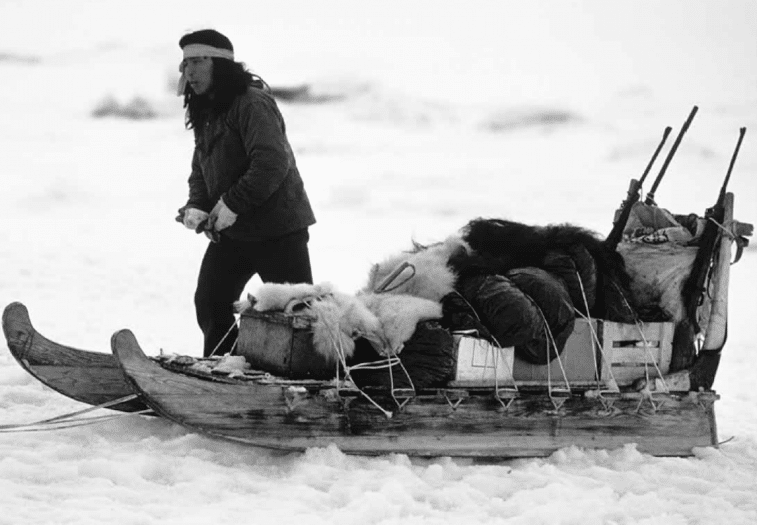
What follows is my attempt to give shape to that silence, to render in lines what argument cannot, to set down in images the ordeal of a country forever confronted by its own North.
“Every Point is North”
North is not direction but ordeal.
A summons written in ice,
answered by wind that strips language from the mouth.
The caribou move like scripture
across a white page that will not close.
They leave hieroglyphs in the drifts—
signs older than sovereignty,
older than our grief at being small.
Not empty, this whiteness—
it already has a name.
We arrive with maps;
the wind corrects our spelling.
To speak of Canada is to stutter.
The word trembles in the air,
a syllable shackled to Parliament,
to treaties broken in the snow,
to a history that vanishes
the further you walk toward the pole.
The north we measure in miles.
The North we enter by silence—
a latitude of the mind
where every point is N.
And yet the North remains:
a cathedral of salt light,
a wound frozen open.
Men came with their banners,
their rifles and their maps,
believing dominion could be hammered
into the permafrost.
But the sky made a mockery of them,
each aurora a laughter in green fire.
Sovereignty is ash.
Silence rules like a monarch,
crowned in ice, faceless,
eternal.
Still we dream of belonging.
We see in the frozen horizon
our fathers bent with labour,
our mothers speaking in smoke,
ourselves reflected as shadows
on the skin of the tundra.
The North gives nothing back.
It keeps what we offer—
blood, labour, myth—
and returns only its vastness.
A raven lifting from the ice,
its wings the only sound.
Brock Eldon is an Owen Sound, Ontario-born writer, editor and educator currently based in Singapore, where he teaches English literature, and serves as Associate Editor at C2C Journal, with work forthcoming in Salmagundi Magazine and a poetry collection, Dominion Ashes: A Book of Decline, due from Ballerini Books Press in February 2026.
